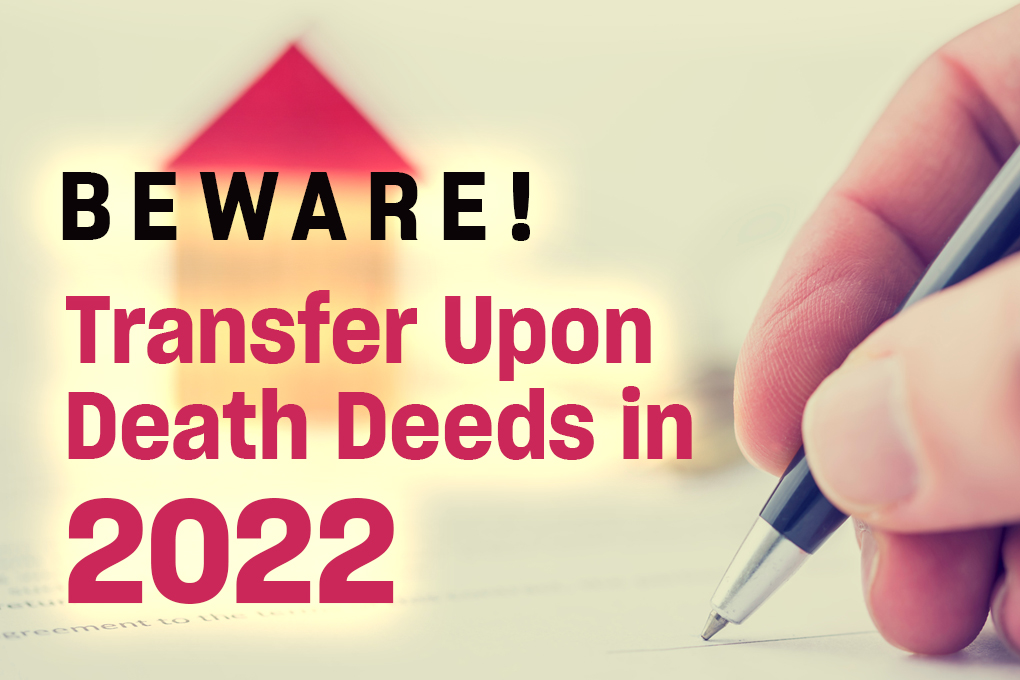In 2016, California enacted legislation creating a way for individuals to avoid probate with the creation of a trust. To create such a probate free transfer, an individual could execute, have notarized and record a document, called a Transfer On Death Deed (“TOD”). By so doing, a future transfer would occur to the beneficiary or beneficiaries under the TOD upon the death of the grantor.
In theory it was a great idea. You could avoid probate, keep full control of your property during your lifetime and eliminate the need for complicated trusts and expensive attorneys. In the real world, however, many concerns have arisen with the document, resulting in potential issues with title insurance.
Transfer On Death Deed Real-World Concerns
Here are some real-world concerns. Because the document created a transfer without a need for probate, certain safeguards were put in place to allow creditors and other potential heir to challenge these future transfers. These safeguards resulted in risk to future title insurers, meaning obtaining title insurance was much more difficult than with a traditional deed, probate, or trust.
Though designed to be a simple document that individuals could prepare without an attorney, in practicality the document is still complicated to complete and defective if not completed accurately. As such, upon presentation to a title company post death, many documents need to be reformed or confirmed by a court to become valid, defeating the original purpose of avoiding probate.
Questions about validity have also plagued beneficiaries who attempt to inherit under a TOD. Concerns over undue influence, capacity and fraud result in underwriters refusing to insure in many cases. Unfortunately, real estate fraud is an ongoing issue and title companies often mitigate this risk by obtaining affidavits from grantors on deed to confirm their intent to transfer. Because validity is not generally addressed on a TOD until after the signer has passed away, it is impossible to get affidavits from the grantors to address these issues.
A New TOD Deed Law in 2022
The numerous issues plaguing TOD caught the attention of the California Legislature in 2021. In response, a new law was passed that goes into effect on January 1, 2022. This law created a requirement that the execution of a TOD must be witnessed by two adults who must attest to the execution and sign the TOD themselves. Further, the witnesses cannot be named as beneficiaries on the deed. Notice must also be given by the beneficiary upon the death of the grantor to interested parties and an affidavit must be recorded attesting that such notification was given.
These additional requirements will likely be beneficial when they are followed, allowing for less issues with title company underwriting. When not followed, however, the validity of a defective TOD will be at issue and the likelihood of such deed being insured will be even lower.
For individuals wishing to use a TOD to avoid probate, a thorough research of the current rules and requirements should be done before one can feel comfortable with this method of estate planning. For beneficiaries struggling to enforce a TOD, consultation with an attorney to determine options is warranted.

